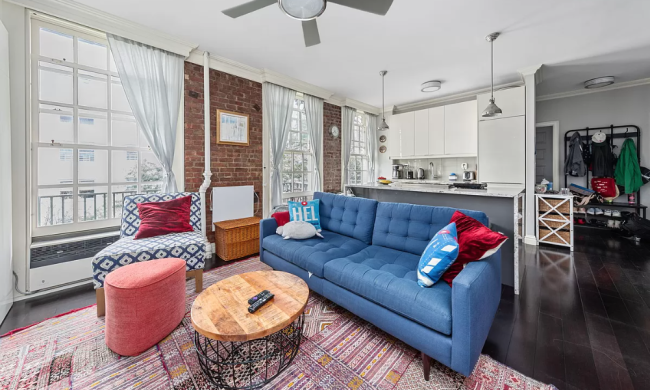What is a 1031 exchange and how does it work?
- This tax deferral strategy involves an exchange of similar investment properties
- Tight closing deadlines make it hard to use with new construction or co-ops

Deferring tax payment is the main objective of the 1031 exchange program.
deberarr/iStock/Getty Images Plus via Getty Images
As with any big financial transaction, when you sell an apartment in New York City you need to pay taxes. If it’s an investment property, rather than your primary residence, you can be taxed on your capital gains, that’s the profit you make on the sale of the apartment or building.
That’s why many New Yorkers turn to a popular tax deferral program called the 1031 exchange, which allows you to put off paying tax on the sale of these kinds of properties if you reinvest the proceeds in a similar property within a tight timeframe.
There are plenty of rules and red tape associated with the 1031 exchange program. Read on for more details.
[Editor's note: An earlier version of this article was published in October 2020. We are presenting it again with updated information for February 2023.]
How to know if a 1031 exchange will work for you
The 1031 exchange is a good strategy if you bought during a downturn or had early-bird pricing on a new construction, or have held onto the place for several years, and seen the value increase. These are all reasons to consider deferring the capital gains tax payment.
“Any tax payment that’s deferred is a good tax payment,” says Dean Roberts, a real estate attorney at Norris McLaughlin.
If you do the exchange, the profit stays with you, allowing you to reinvest it. “Eventually you will pay this tax but if you put off the payment for 10 years, you will have had the money for 10 years and haven’t had to pay taxes,” he says.
You can also use the 1031 exchange as an estate planning tool. This helps you reduce the capital gains, and therefore tax, even further.
In this scenario you’d buy a replacement property with the intention of holding it until death. “When the owner dies, the deferred tax doesn’t get paid because the estate gets the benefit of stepping up the cost basis of the property to current market value, thereby reducing the gain and tax that is due,” says attorney Steven Hafif, a partner at Abrams Garfinkel Margolis Bergson.
The Agency's Off-Market Advantage
Discover off-market investment properties in your target neighborhood that suit your needs and budget. Meet and deal with sellers before their property hits the market.


Let The Agency off-market team give you exclusive access to real estate investments that make sense. More options, less competition, no bidding wars.
You need do a 1031 exchange with similar properties
When you employ the 1031 exchange, the trade must involve “like-kind” properties. So the investment property you are buying needs to be exchanged for a similar kind of property. It is, however, possible to exchange a residential property for a commercial one.
“Like-kind property can mean selling any real estate for other real estate. You can sell a condo and buy a co-op, sell a warehouse and buy a house,” Hafif says.
It's also possible to use the 1031 exchange if you are selling a vacation property, but most likely, you'll need to have rented it out as an investment for at least six months prior to the sale in order to qualify.
How to time a 1031 exchange
In order to comply with the rules, you will have to identify a property you want to buy within 45 days of the sale of your qualifying apartment. The next deadline is closing on the purchase of your replacement property within 180 days of the original sale.
This gets complicated if you're trying to use a 1031 exchange to buy in a new construction or pre-construction building, where delays in the delivery timeline can affect the closing date. Delays are also a risk if you are buying a co-op where the closing can take much longer and your deal could be jeopardized if you are turned down by the co-op board.
“This can affect your 180-day time constraint on the 1031 exchange. I advise my clients who are doing the 1031 exchange to stick to condos or townhouses,” says Rebecca Blacker, a broker at Coldwell Banker Warburg. Restrictive subletting rules in many co-ops also mean they may not be the best investment if the apartment is not your primary residence.
You’ll also want to take into consideration your tax filing deadline, especially if you are selling towards the end of the year. The trade would ideally take place within the same tax year or—with the proper planning—be shifted the next tax year.
In between the sale of your first property and the closing on the second, your profits need to be in escrow with a real estate attorney. This is an important part of the process.
“It is because of these very specific issues that most people use a 1031 servicer to complete the transaction,” Roberts says.
—Earlier versions of this article contained reporting and writing by Virginia K. Smith.




























